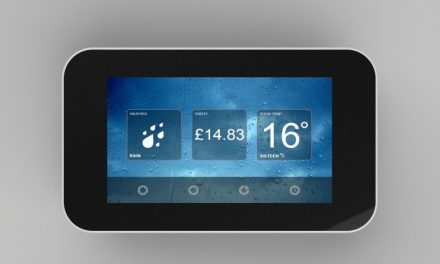 Companies frustrated at the lack of clear guidance on energy efficiency have until 31st January to persuade the Department of Energy & Climate Change (DECC) to write effective new measures into the Energy Bill, so that positive change finally takes root and utility bills could go down rather than up. This is the view of Duncan Everett, managing director at Optimal Monitoring.
Companies frustrated at the lack of clear guidance on energy efficiency have until 31st January to persuade the Department of Energy & Climate Change (DECC) to write effective new measures into the Energy Bill, so that positive change finally takes root and utility bills could go down rather than up. This is the view of Duncan Everett, managing director at Optimal Monitoring.
On 29th November 2012, John Hayes, the energy minister, published the coalition’s much anticipated Energy Bill, setting out the various measures that will be enforced to ensure the UK’s switch to ‘a low carbon economy’, and to attract the £110bn investment needed to keep up with the nation’s rising demand for electricity.
Within the bill the energy reduction element is by no means finalised. To address this the DECC has embarked on a consultation period (open until the end of January) during which it is inviting ideas on how the government can help businesses reduce their energy and ultimately, cost. This is a valuable window of opportunity for businesses and landlords to have their say, and to help mould requirements while they are still being formulated.
Knowledge is power
Arguably the biggest thing that needs to happen is the visibility and release of customers’ consumption data so that companies can get a clearer picture of how they are doing – how inefficient their energy consumption is currently, and how much this is costing them.
For all of the practical government help that is out there for businesses, including incentives like the Green Deal and Enhanced Capital Allowance, how do you decide where to invest in the first place, with any assurance that your investment is going to give a return?
Achieving this level of insight is by no means straightforward as things stand. Even among many very large organisations whose consumption levels are being monitored by smart meters at half hourly intervals, most are unaware of how to access and interpret this data. This is because the utility companies own and hold the data, and do not proactively share it with customers – it is hardly in their commercial interests to curb companies’ energy wastage.
The result is that, despite being entitled to this data (and paying for it as part of their standing charges), the vast majority of organisations are none the wiser about their day to day carbon performance and any savings that could be made. Even if they did manage to access the raw data being captured by the energy companies, it of course wouldn’t mean much to them without informed analysis related to their organisation and financial structure.
One of the most positive steps forward, if enough people demanded it as part of the new bill, would be free access to their energy consumption data, however and wherever they want it. Surely to promote reduction it should be clear to the customer that they own the data. That this data is closely guarded and controlled by the energy providers hardly fosters customers’ freedom to choose or to switch suppliers. Even if these big players decided to do more to make this information accessible and comprehensible to customers, what happens when you change supplier?
Converting inertia
Once companies are better informed about their energy saving opportunities, they are likely to be more inclined to do something about it. At this point, any capital investment needed could be supported by the existing government grants and schemes, and consumers will begin to realise the financial value in energy reduction. Yet so far it has been that crucial first step that has been missing – the acquisition of real decision supporting information to propel companies forward on the road towards leaner, more environmentally conscious energy use.
Another practical solution to companies’ apathy is to come up with a certificate scheme that works – i.e. in highlighting businesses’ true environmental performance in a way that is fair, accurate and comparable. The existing Carbon Reduction Commitment (CRC) scheme is really just a paper exercise and not open to all, offering no tangible value because it doesn’t help companies decide what to do to improve their performance.
With real data and credible comparisons between companies, organisations would no longer be able to bury their heads in the sand and do nothing. One suggestion is that all businesses are awarded Display Energy Certificates (DECs) as currently issued with new electrical appliances and cars. Government buildings must display them already and it is very telling that DECC, which itself merited only a G rating two years ago, has since undertaken various measures to bring its status up to C.
 Apportioning responsibility
Apportioning responsibility
Once an organisation is compelled to display its energy use in its reception area or similar, it’s amazing how this motivates the business and its individual staff to make positive changes. The value in the DEC energy performance certificate is that it employs a relevant and fair measurement, which everyone understands – and which acknowledges a building’s use.
Although every ‘let-able’ building needs an energy performance certificate (EPC), these rate premises on their condition ‘as built’ – they do not allow for the building’s actual use. It’s all very well having an A-rated building, but if the use of the building and its resources is inefficient or wasteful, this merit means very little. The DEC certificate acknowledges whether the premises house a manufacturing facility or a school, etc, and assesses performance accordingly. In taking into account the disconnect between a property’s current state and what happens in that building, businesses’ and landlords’ respective responsibilities would be made clearer too, so that one party can’t hide behind the other, and so that one doesn’t have to pay the price for the other’s shirking. If the building and its infrastructure is found wanting, the tenants will have a more robust case for requesting improvements.
At this point, all is not lost – there is still time to influence the government’s decisions on energy efficiency and carbon reduction while these aspects of the Energy Bill are still being firmed up, but only if we act quickly. Beyond 31st January we cannot complain if we find ourselves railroaded into poorly thought-out solutions.
Smoke & mirrors
Canadian university professor Dror Etzion makes a strong point in the article www.mcgill.ca/channels/news/sustainability-stealth-4-ways-make-sustainability-more-attractive-212157, that for real change to take place organisations need the sustainable choices to be easier than the alternative, not more worthy. In this way they gradually become the default options. If it’s cheaper to buy, easier to access, and fits in better with people’s image of themselves, Etzion argues, then it’s more likely to actually happen.
So there is a lot to be said for holding up a mirror for companies and their employees, or landlords and their business tenants, and letting them react to what they see. Only when presented with the extent (and cost) of poor energy efficiency can the proponents of a solution go to the board with a convincing enough argument for investment into alternative strategies. Once individuals feel engaged and appreciate the impact of more efficient and responsible practices, they move from sceptics to advocates very quickly, as DECC has found within its own walls.
After that it’s down to the right incentives (for example varying carbon tax-based on companies’ real performance as shown on their DEC certificates), or threats of exposure through poor public rankings.
If all else fails, it’s worth reminding company purse holders that wholesale electricity prices are on course to double from 6p to 12p per unit by 2020. That should be enough to rouse any procurement manager from their apathy.
However, whatever you do in the meantime, don’t miss DECC’s consultation deadline of 31st January. Remember that the best solutions are often the simplest, but these can also be the easiest to overlook. Have your say before it’s too late at www.decc.gov.uk/en/content/cms/consultations/edr_cons/edr_cons.aspx or if you would like a recommendation on how to respond Optimal Monitoring has created three suggested emails – available here: info.optimalmonitoring.com/decc-consultation/.





